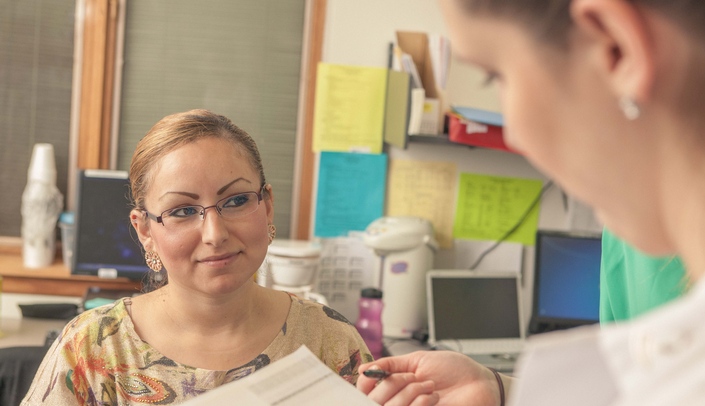The Behavioral Health Education Center of Nebraska (BHECN) has received a four-year, $1.1 million grant to increase the number of behavioral health paraprofessionals in rural and medically underserved areas of Nebraska.
The grant, funded by the Health Resources and Services Administration (HRSA), an agency of the U.S. Department of Health and Human Services, will provide full tuition and laptops for 70 non-traditional students each year to become community health workers and provisionally licensed addiction counselors.
With an emphasis on recruiting rural, low-income and minority students, upon completion of training, students commit to work in rural or medically underserved areas of Nebraska.
“This is a unique opportunity for non-traditional students to gain the knowledge and entry-level experience in the behavioral health profession, and this training can be a stepping stone to further education and career advancement in the field,” said Brent Khan, Ed.D., project director and BHECN co-director.
“Nebraska experiences significant shortages of mental health professionals in 88 of our 93 counties,” Dr. Khan added. “In collaboration with recruiting, education and clinical partners across the state, this is an exciting opportunity to make an impact in these shortage areas to increase access to care.”
“More than half of the licensed alcohol and drug counselors (LADCs) in Nebraska are over the age of 55, nearing retirement age,” said Christine Chasek, Ph.D., LADC, associate professor, counseling and school psychology, University of Nebraska at Kearney. “We’ve seen a significant drop in LADCs since 2014, and this model will help fill the gaps we are experiencing in the workforce.”
“Many of our members employ community health workers who, with formal and targeted behavioral health training, could be deployed as part of a larger strategy for addressing local behavioral health needs,” said Susan Bockrath, executive director of the Nebraska Association of Local Health Directors (NALHD). “They and their communities would benefit from the tuition, student fees and supplies supported by this opportunity.”
Recruiting will begin this fall for 35 students interested in completing the community health worker (CHW) certificate program and for 35 students interested in completing the addiction counseling program to become a provisionally licensed alcohol and drug counselor (PLADC). Education partners include Central Community College, Northeast Community College and Bellevue University.
On-site clinical training will be provided in collaboration with Munroe-Meyer Institute’s integrated care clinic sites and other community health centers, such as Midtown Health Center in Norfolk, Community Action Partnership of Nebraska in Gering, and Community Alliance in Omaha.
Applicants must have a high school diploma or GED and can learn more by visiting https://unmc.edu/bhecn/programs/student-training. For questions, contact Laura Holly at laura.holly@unmc.edu, (402) 552-7692.
This project is supported by the Health Resources and Services Administration (HRSA) of the U.S. Department of Health and Human Services (HHS) under grant number M01HP31279 and Behavioral Health Workforce Education and Training (BHWET) for $1.1 million over four years. This information or content and conclusions are those of the author and should not be construed as the official position or policy of, nor should any endorsements be inferred by HRSA, HHS or the U.S. Government.
About BHECN
The Behavioral Health Education Center of Nebraska (BHECN), pronounced “beacon”, was established in 2009 by Legislative Bill 603 to improve access to mental health and substance abuse services, commonly referred to as behavioral health services, for all Nebraskans through development of a skilled workforce. It is a unique partnership among the state legislature, academic institutions, and community partners to create a statewide workforce solution for the shortage of licensed behavioral health professionals. For more information about BHECN, visit www.unmc.edu/bhecn.
